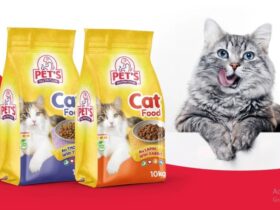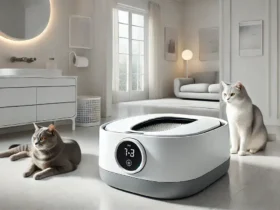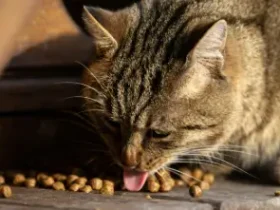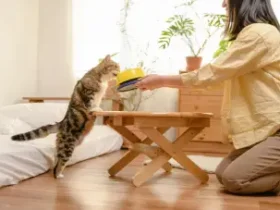In recent years, pet owners have been gravitating towards more natural and organic options for their furry friends. This trend has certainly reached the cat food market, with brands offering products labeled “natural” and “organic” promising a healthier diet for your feline. But are these foods really worth the hype, or are they just another marketing gimmick?
What Does “Natural” and “Organic” Mean for Cat Food?
Before diving into the benefits, it’s important to understand what these terms actually mean.
- Natural Cat Food: Generally refers to food made from ingredients that come from animal, plant, or mined sources, with minimal processing. No synthetic additives or artificial preservatives are used.
- Organic Cat Food: Organic goes a step further by ensuring that the ingredients used are grown or raised without pesticides, synthetic fertilizers, or GMOs. Organic products are typically certified by regulatory bodies to meet specific standards.
Benefits of Natural and Organic Cat Foods
- Fewer Chemicals and Additives: Many commercial cat foods contain preservatives, artificial colors, and flavor enhancers that might not be ideal for your cat’s health in the long run. Natural and organic options tend to be free from these additives, reducing your pet’s exposure to potentially harmful chemicals.
- High-Quality Ingredients: Organic cat foods typically use high-quality ingredients, often including whole meats and vegetables instead of by-products or fillers. This can lead to better digestion and improved overall health for your cat.
- Better Skin and Coat Health: Cats fed on a natural or organic diet may show improvements in their skin and coat condition. The absence of artificial ingredients and the inclusion of nutrient-dense foods can promote a shinier coat and healthier skin.
- Sustainability and Ethical Concerns: If you’re environmentally conscious, organic cat food may align with your values. Organic farming practices are generally more sustainable and animal-friendly, making it a better option for those looking to reduce their environmental footprint.
Are There Any Drawbacks?
- Cost: One of the most significant downsides is cost. Organic and natural cat foods tend to be more expensive than standard commercial brands. While they offer high-quality ingredients, it may not always fit into every pet owner’s budget.
- Availability: Not all stores carry a wide selection of natural and organic cat foods, so you may find yourself searching or ordering online, which could be inconvenient.
- No Guarantee of Nutritional Superiority: Just because a cat food is labeled natural or organic doesn’t necessarily mean it is nutritionally superior. It’s important to check the label and make sure the food meets your cat’s specific dietary needs, whether they require high protein, grain-free, or specialized formulas.
How to Choose the Right Food for Your Cat
- Check for Certifications: Ensure that any organic cat food is certified by a reputable agency, such as USDA Organic. This guarantees that the product meets organic standards.
- Look at Ingredients: Even within the natural and organic realm, the quality of ingredients can vary. Look for high-quality sources of protein, and avoid foods with fillers like corn or soy.
- Consult Your Veterinarian: If you’re unsure whether switching to a natural or organic diet is the best choice for your cat, consult your vet. They can help guide you towards the most nutritious option for your pet’s specific health requirements.
Conclusion: Are They Worth the Hype?
Natural and organic cat foods can offer several advantages, from better ingredient quality to fewer chemicals and additives. However, these benefits come at a higher price, and they are not always necessary for every cat. The most important thing is to provide a well-balanced, nutritious diet that meets your cat’s specific needs. If you can afford it and want to reduce your cat’s exposure to unnecessary additives, then natural or organic options could be worth considering.
For many pet owners, the peace of mind that comes from knowing they’re providing a cleaner, more ethically sourced meal is enough to justify the switch. But always remember to do your research and consult with your vet to make the best decision for your feline friend





Leave a Reply